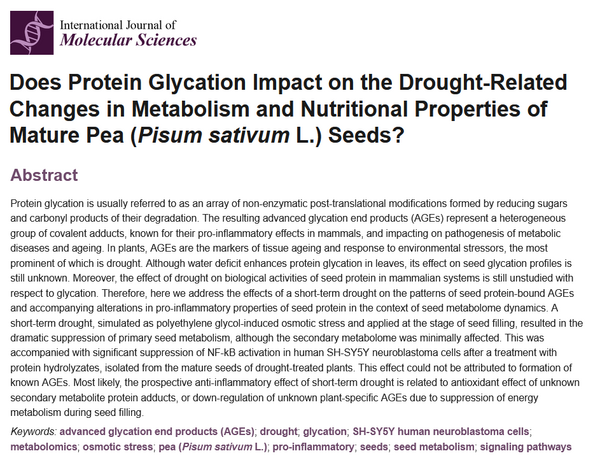Effect of drought stress on plant seeds.
Scientists from the IPB, MLU, and Russia recently published a study on drought-related metabolic alterations in plant seeds. In leaves, water deficit enhances protein glycation and yields advanced glycation end products (AGEs) whose formation and effects are well-studied in mammals. However, the effect of drought stress on protein glycation in seeds has not been investigated so far.
In their study, the researchers found that a two-day drought-simulation treatment with osmotic stress resulted in the dramatic suppression of primary pea seed metabolism. From mammals, AGEs are known, e.g. for their pro-inflammatory effects. Treatment of human neuroblastoma cells with protein hydrolyzates, isolated from the mature seeds of drought-treated plants, unexpectedly resulted in a significant suppression of NF-κB activation. Hence, the isolates had an anti-inflammatory effect that cannot be attributed to the formation of known AGEs.
The scientists consider various reasons to be plausible: Under dehydration conditions, essential reactive primary metabolites, that are required for the formation of unknown plant-specific AGEs, are depleted. Also, antioxidant properties of unknown secondary metabolite protein adducts could lead to the anti-inflammatory effect. However, to completely unterstand the underlying mechanism, different drought models with different stressor dosages need to be investigated.



